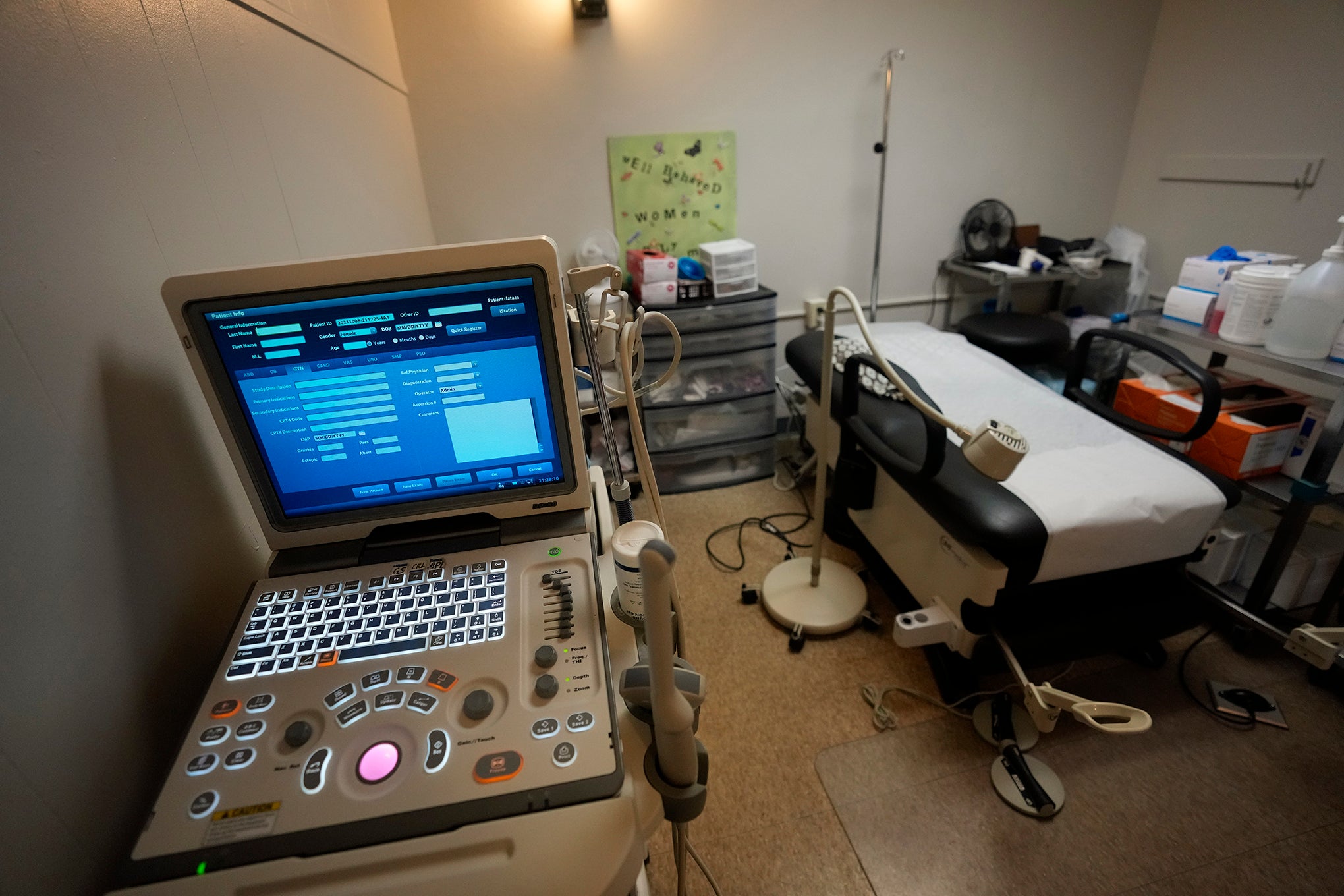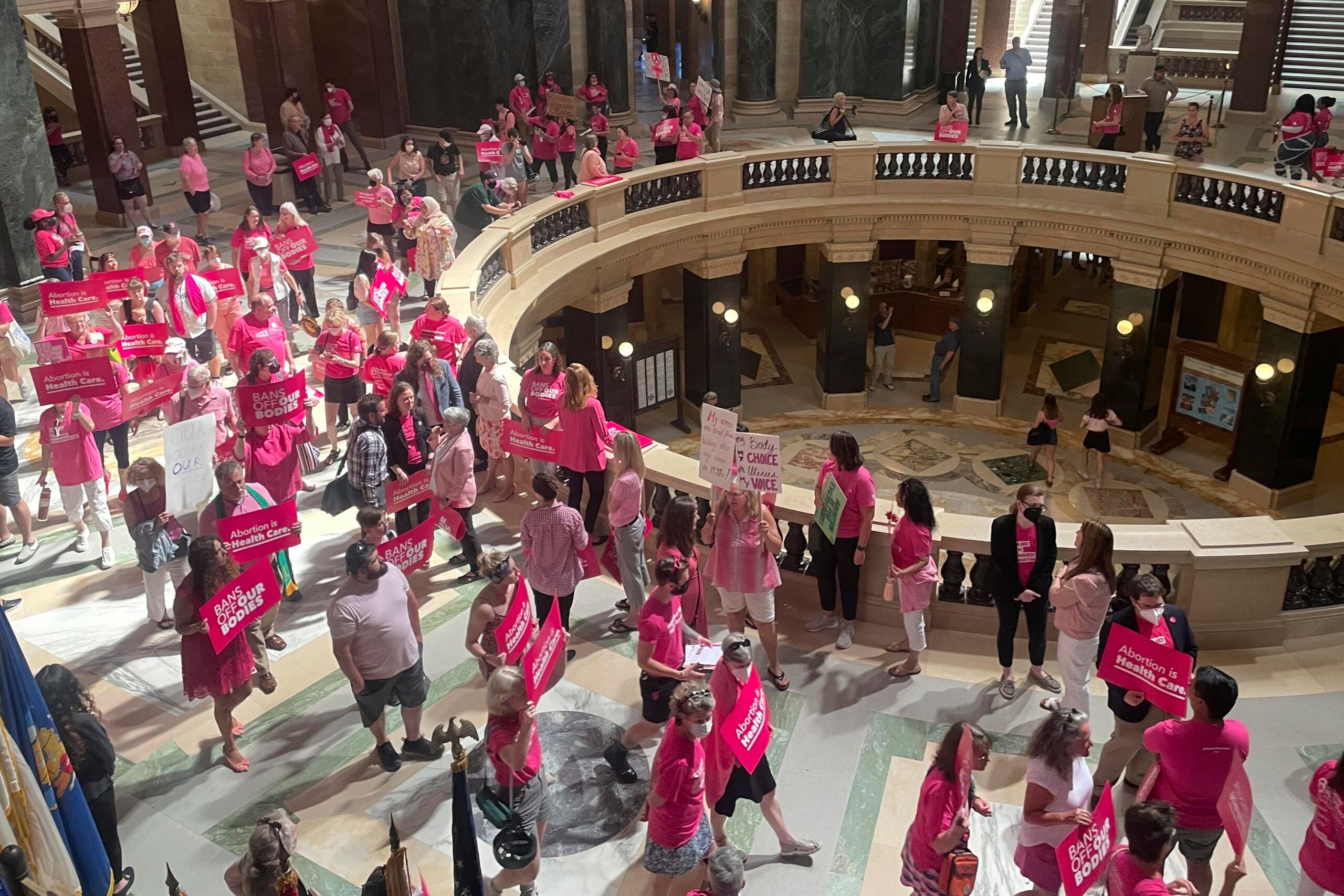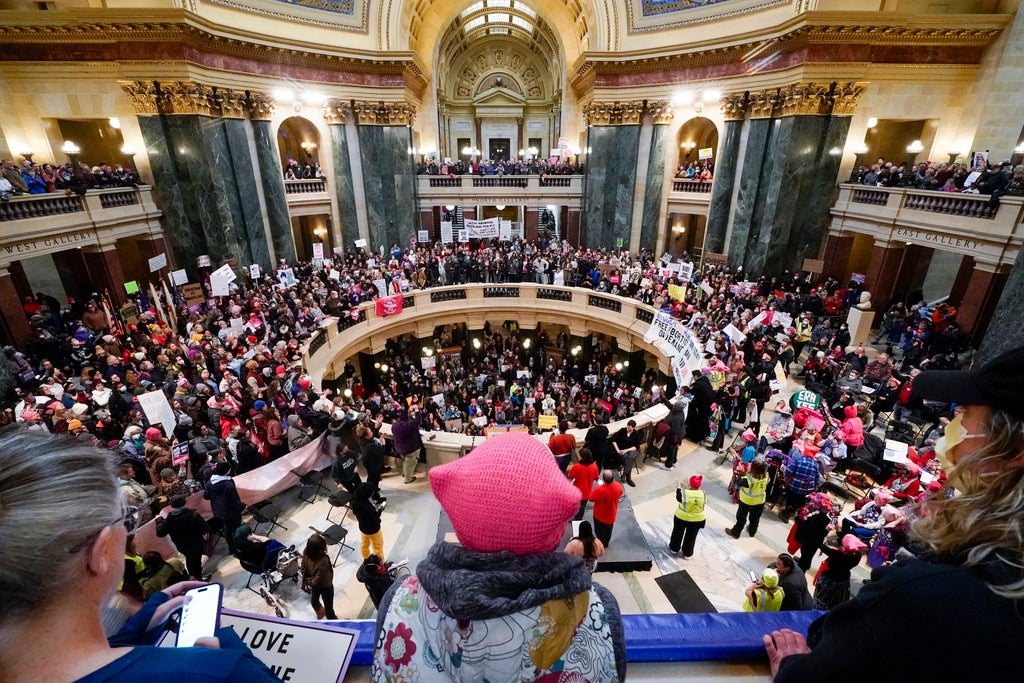Historical analyses of abortion vary widely.
Depending on what you read, abortion in early America was commonplace, safe, legal and accepted — or it was dangerous and uncommon.
The abortion history debate was elevated this summer when the United States Supreme Court’s majority opinion in Dobbs v. Jackson Women’s Health Organization asserted “the right to abortion is not deeply rooted in the Nation’s history and tradition.” Dobbs overturned Roe v. Wade, the landmark case that had guaranteed abortion rights since 1973.
News with a little more humanity
WPR’s “Wisconsin Today” newsletter keeps you connected to the state you love without feeling overwhelmed. No paywall. No agenda. No corporate filter.
While legal experts on both sides of the debate have agreed that abortion historically has not been considered a constitutional right, Justice Samuel Alito’s opinion riled up many scholars for a number of reasons — chief among them his claim of an “unbroken tradition” of criminalizing abortion.
History is also top-of-mind in the post-Roe world because of so-called “zombie” abortion laws. These are laws that were in place before Roe, then stayed on the books and weren’t enforced after Roe rendered them unconstitutional in 1973.
Many states have zombie abortion laws. But most abortion bans were written in recent years in anticipation of Roe being overturned. Wisconsin is one of three states — along with Oklahoma and Texas — that is enforcing a pre-Roe ban.
Two people wrote to WPR’s WHYsconsin with questions about Wisconsin’s 1849 abortion law and the history of how it came to be in the first place.
One person asked, “What in our society has changed since 1849? Why did people in Wisconsin (during) those times feel that human life at all stages should be protected by law?”
Another asked, “Is there any record on how that law was enforced prior to Roe v. Wade?”
WPR’s “Central Time” host Rob Ferrett spoke with Mary Ziegler, a professor at the University of California-Davis School of Law, and Kimberley Reilly, an associate professor of democracy and justice studies, history, and women’s studies at the University of Wisconsin-Green Bay.
The following transcript has been edited for length and clarity.
Rob Ferrett: Wisconsin becomes a state in 1848. The first abortion law passed in 1849. Was this a specific thing, saying, “Hey we have to tackle the abortion issue”? Or was this just something that Wisconsin did as it was becoming a state?
Kim Reilly: We know that they’re trying to codify the common law, and that’s (a process) that’s also happening in (other) states during the mid-19th century — there’s an effort by some legal reformers to (codify common law). Common law is judicial decisions. (Reformers at the time were trying to put common law) into state statutes. So I think this is likely a matter of the state sort of putting (the common law) into statute, as Wisconsin is becoming a state.
RF: Let’s get to the first question shared with us. Can you talk about the variety of ways people in Wisconsin might’ve thought about abortion in the mid-1800s, when this law came into effect?
KR: What we know about the law that was passed in 1849 is that it actually made the killing of a “quick child” an act of manslaughter. What that meant was a child that had undergone quickening — the fetal movement that a pregnant woman would feel, which takes place usually between the fourth and sixth month of pregnancy. Stretching back from the 13th century all the way through the mid-19th century, the quickening doctrine prevailed in law. It was acceptable to end a pregnancy before quickening was felt.
RF: The 1849 law gets revised in 1858. They get rid of the word “quick.” Was this a common change around the country to go from banning abortion after quickening to banning abortion in most cases, regardless of how far along the pregnancy was?
Mary Ziegler: It was. There was a movement led by the American Medical Association, AMA, that took issue with this quickening distinction across the country. The AMA was pushing that kind of proposal not just in Wisconsin, but in states across the country. (The AMA) was even pushing it with the President of the United States and Congress. So this was definitely a national transformation, not just a local one.
RF: There was a key figure here in Wisconsin connected to the national scene — William Henry Brisbane, a doctor on the AMA committee that reported on criminal abortion. Can you talk about his influence in the state at the time?
KR: We don’t have a complete historical record on Dr. Brisbane. But we know he was a Baptist minister that was born in South Carolina, and he moved to Wisconsin in the 1850s. He became chief clerk of the state Senate in 1857. And he was appointed by the AMA to report back to the organization on efforts to criminalize and suppress abortion. He expressed fears about middle class, and particularly upper class, women seeking abortions and even using birth control. He wrote to a colleague that he wanted to get a law passed that criminalized both birth control and abortion in Wisconsin. It’s likely that he had influence over this 1858 law.
RF: Mary, can you talk about the cultural mindset behind the anti-abortion effort, the effort to pass laws in states around the country?
MZ: Unsurprisingly, it was complicated. One of the listeners who wrote in (to WHYsconsin) suggested that the people who were trying to criminalize abortion — the doctors (who were part of the AMA) — had an investment in the idea that life began at conception. And we have some evidence that they made that argument. That was a significant claim that they made in justification for their attitude.
They also made other arguments that would be less familiar to us today.
They seemed concerned about the relative birth rates of Catholics and Protestants. They were arguing that across the country, as Catholic immigration increased, that Catholic women were having more children than Protestant women, and this was bad for the country, from a kind of eugenics standpoint.
They made arguments about gender — essentially the idea being that women who were having abortions were betraying their obligations to their husbands to have children and to be wives.
They even suggested that this was sort of a professional gatekeeping responsibility, because this was a time when the medical profession as a whole was much more porous, and less regulated than we’re used to today. This idea that only certain kinds of doctors understood when life began, and only certain kinds of doctors had the moral fiber to oppose abortion was one point of differentiation in this very competitive market between doctors, midwives and other kinds of practitioners.
There were lots of motives that these activists seemed to have. So if you’re trying to pinpoint, was it really all about fetal life? Or was it really all about eugenics? Or was it really all about gender roles? The answer seems to be yes to all of them. And I think sometimes it’s hard to disentangle whether those things were even related internally.
RF: Let’s talk about enforcement of these laws. Our second question is about enforcement of abortion restrictions that existed prior to Roe.
MZ: There was a lot of under-enforcement. We know once states began criminalizing abortion earlier in pregnancy, as Wisconsin did (in 1858), prosecution remained pretty unusual, with the exception of cases where a pregnant woman died during the procedure. So even as Wisconsin was joining other states in passing further-reaching abortion bans, there was a pretty big disjuncture between the letter of the law and how people were living their lives.
So you had this kind of odd sort of duel mindset that seemed to exist. Because you had lots of states, like Wisconsin, passing abortion laws seemingly eliminating the quickening distinction. And simultaneously, people’s actual experience with abortion — their willingness to have abortions or perform abortions — didn’t seem fundamentally different (from before the passage of these laws). In fact, prosecutors were very unlikely to enforce the laws.
I think that’s one of the reasons why it’s hard to generalize, because there was no single (universal) attitude (toward abortion) I think we can identify.
KR: Brisbane wrote in another letter to a colleague that he didn’t actually expect the law to be enforced, but he hoped that it would have a moral influence over people. So I think even he was pragmatic about — as Professor Ziegler was saying — the realities of enforcement of this criminalization of abortion laws.
RF: It can be tough to untangle this history from the arguments we’re having now in 2022. Is it possible, as we dig into the history, to get a clear picture, given the biases we all bring into it?
KR: I think it is possible if we allow that the picture is probably more complicated than any of us would imagine it to be when we come in with our present-day biases. It’s not a conversation of life versus choice in the 19th century. If we can get beyond that and open up to other possibilities, we might get a more accurate picture.
MZ: I think it’s important to understand our history, and it’s also important to remember that history isn’t sort of like an input-output machine.
When we look at history, we’re going to see messiness and nuance.
So while I think it’s important to understand how we got where we are, I think it’s also important to approach history from the standpoint of something that is going to be more complicated than the black-and-white debates we may want to have about a subject like abortion.
This story was inspired by a question shared with WHYsconsin. Submit your question below or at wpr.org/WHYsconsin and we might answer it.







